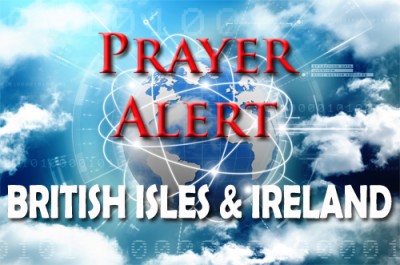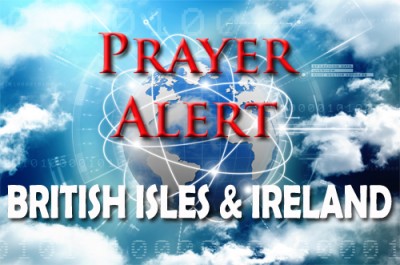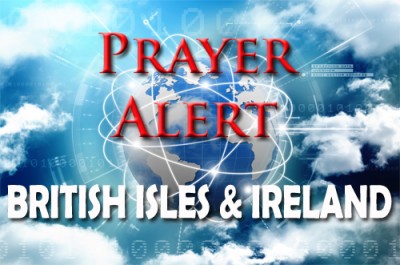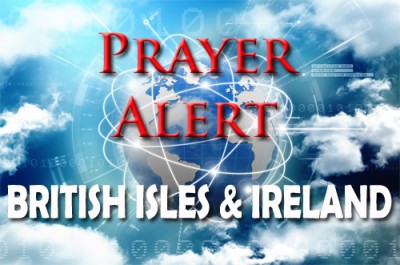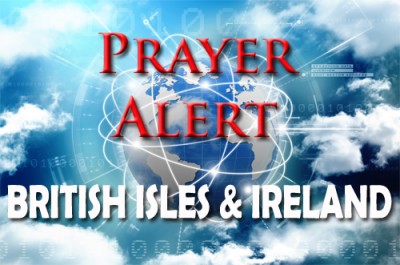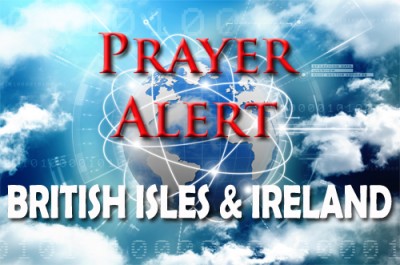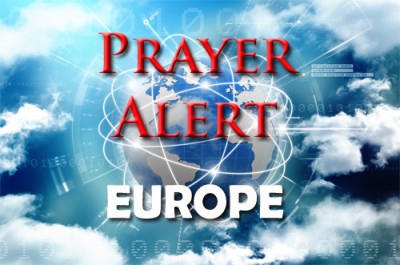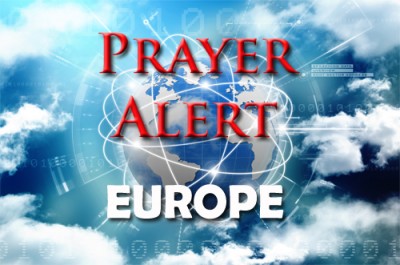Church and Mission
07 Jun 2019Pilgrimages are fashionable. Across the world participation in religious pilgrimages has increased by up to four times in the last 20 years. This is indicative of a spiritual searching and represents an exciting new opportunity for rural mission. Pray for churches close to established routes to serve and reach out to pilgrims by providing resources, hospitality, accommodation and explanation. Pray also for initiatives to discover, develop and promote new routes.
A Southend library is teaching primary pupils about modern views on gender identity in story-telling sessions. The free sessions are hosted by flamboyant drag king Joey Bambino who is ‘gender fluid’ and drag queen Saffron Slayter. They aim to show children as young as five that it's OK to be different. One of the LGBT stories is called When Kyla Was Kyle. The children also dressed up and played games at the ‘family’ council-backed Drag Story Time session. Opinions are split about the sessions. Some compared it to Shakespeare plays where men dress up as women, others said primary school children were ‘way too young for this sort of thing’ and it was ‘sad that so much is being pushed on to our young children these days’. A Southend Pride representative, said, ‘We’re delighted to be able to bring Joey and Saffron to the forum to host this fun-filled event for all the family.’
Religious education given Ofsted boost
07 Jun 2019Campaigners for better RE say the new school inspection framework will put more pressure on schools to prioritise the subject. It is understood that two-day-long inspections will now put greater emphasis on the broad curriculum while a small number of subjects will also be chosen as a focus for examination. These subjects could include religious education. Ben Wood from the National Association of Teachers of Religious Education said, ‘Ofsted are really pushing the sense that they want a curriculum to be broad. And that means that while English, Maths and Science are important so is RE, history, geography, art, music, and PE. They are all important, they all have a role to play. It is very heartening to hear Ofsted saying that within the curriculum, RE has a crucial role to play.’ Schools must now ensure pupils can reflect their own religious beliefs as well as having knowledge and respect for others.
Therapeutic church gardening
07 Jun 2019Lambeth Palace has hosted a conference exploring links between mental health and gardening and has called for churches to use their green space to offer ‘therapeutic gardening’. Green Health Live 2, brought together chaplains, public health experts and healthcare professionals. They showcased innovative work being done by parishes to provide therapeutic gardening spaces - and encouraged more churches to work with local mental health charities and medical professionals to do the same. A survey of clergy revealed that mental health issues were at the top of the list of problems faced in their parishes. Research shows that gardening helps to relieve the effects of depression, loneliness and a range of mental health issues, but many people, particularly in towns and cities, do not have gardens of their own. However churches often have spaces where a garden can be created to offer basic gardening experience, access to nature and companionship.
One in five girls and young women aged 16 to 24 have cut, burned or poisoned themselves, according to research that mental health experts said was ‘very worrying’. The findings, published in the Lancet Psychiatry journal, show that self-harm has risen across both sexes and all age groups since 2000. In the population as a whole it almost trebled by 2014 with the number of people cutting themselves the highest category. . They harm themselves as a way of coping with anger, tension, anxiety and depression. However, a lack of NHS services and people’s unwillingness to seek help means that more than half of those who self-harm do not receive any medical or psychological care. It is most common among females aged 16 to 24. So many young people are self-harming that it risks becoming normalised and increasing the number who kill themselves when they are older. Pray for the NHS, Education Authority and Social Services to develop teaching plans that will help people learn more appropriate ways of dealing with stress.
President Trump ‘actions betrayed the Gospel’
07 Jun 2019Mr Trump sparked controversy minutes before he landed at Stansted Airport on his state visit by calling the London Mayor a ‘stone cold loser’ on Twitter. It followed Sadiq Khan's comments that the UK should not ‘roll out the red carpet’ for Mr Trump. Simon Barrow from Christian think tank Ekklesia said Mr Trump's language was unacceptable; saying, ‘It doesn't seem very presidential behaviour and I'm tempted to ask, 'who would Jesus call a loser?' that wasn't the language of Jesus. ‘Jesus blessed the poor, he welcomed the stranger, he called on his followers to put away the sword, he honoured God's creation and he blessed those who cursed him. He joined London’s protestors as an act of Christian witness against many of the things that President Trump stands for which he believes are anti-gospel and being promoted in the name of Christianity.
Germany: Two prayer requests
07 Jun 2019With the tremendous growth in what is now medically possible, organ donation raises many questions from a Christian-ethical point of view. Our society urgently needs to ask God for guidance and leadership in these increasingly far-reaching questions of life and death. The German parliament will discuss and vote on organ donation proposals in the autumn without a party whip. We have been asked to pray for a God inspired and guided debate on how parliament should proceed with the organ donation question. Secondly, Germany has about twenty large and influential criminal family clans, with their fingers in many pies, creating complex lawless challenges across the nation.
Ukraine: New President’s Brussels trip
07 Jun 2019Ukraine has deep-seated corruption, economic challenges, and conflict with Russia-backed militants in Donetsk and Luhansk resulting in 13,000 deaths since 2014 when Russia seized control of Ukraine's Crimean Peninsula. Ukraine’s new president, Volodymyr Zelenskiy is a popular comedian with no political experience. He has called on the EU to step up sanctions against Russia ‘to get peace back in Ukraine’. Zelenskiy said that under his leadership Ukraine will continue to pursue EU integration, calling it ‘an assurance of the independence of the Ukrainian state, the welfare of the Ukrainian people, and the accelerated economic and technological growth.’ As the ‘Bible Belt’ of the former Soviet world, Ukraine’s Church has a history of persecution. Freedom of religion is improving, but is not yet protected in both law and practice. Leadership training and direction are greatly needed among Christians. May followers of Jesus arise as messengers of His hope for the future. See
